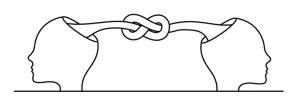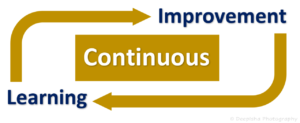Embarking on a PhD journey can often feel like running a marathon—long, demanding, and requiring stamina and strategy. Just as marathon runners need preparation, endurance, and support to reach the finish line, PhD students need similar strategies to navigate the extensive and often arduous path of doctoral studies. The road to a PhD is not a sprint but a marathon that tests your resilience, patience, and dedication over several years. Therefore, preparing yourself both mentally and physically for this demanding journey is crucial.

In this post, we will explore essential tips for surviving the PhD marathon, ensuring that you stay on track, maintain your well-being, and ultimately succeed. These strategies will help you manage your time effectively, maintain motivation, and build a strong support system, which are all key components of a successful PhD experience.
We will draw on insights from various research approaches to provide a comprehensive guide. For instance, mixed methods research, which combines both qualitative analysis and quantitative analysis, can offer a well-rounded perspective on tackling complex research questions. Additionally, understanding the principles of quantitative analysis will help you manage and interpret data effectively, ensuring your findings are statistically sound and reliable. On the other hand, qualitative analysis will enable you to explore deeper insights and understand the contextual nuances of your research subjects.
Setting Realistic Goals and Milestones
Strategic planning is essential for successfully navigating the long-term project of a PhD. It requires careful planning and goal setting to ensure that you stay on track and make consistent progress. One effective strategy is to break down your research into manageable milestones. These milestones can include specific tasks such as completing literature reviews, drafting chapters, conducting experiments, or collecting data. By segmenting your research into smaller, more manageable parts, you can avoid feeling overwhelmed by the enormity of the project.
Utilizing tools recommended by dissertation services and data consultants can significantly aid in this process. These tools can help you keep track of your progress, set deadlines, and adjust your plan as needed. For example, project management software like Trello or Asana allows you to create a visual timeline of your tasks, helping you to see the bigger picture while managing day-to-day activities. Regularly updating these tools with your progress can provide a sense of accomplishment and motivate you to continue moving forward. According to Smith and Jones (2020), such strategic planning can help maintain focus and direction throughout the PhD journey.

In addition to long-term strategic planning, setting short-term objectives is crucial for maintaining momentum. Each chapter or phase of your research should be treated as a mini-goal. This approach not only makes the overall process less overwhelming but also allows you to celebrate small victories along the way. For instance, completing a chapter draft or successfully conducting an experiment can be significant achievements that boost your confidence and motivation.
Seeking advice from a dissertation mentor can be invaluable in defining these short-term objectives. A mentor can provide guidance on setting realistic goals, offer feedback on your progress, and help you navigate any challenges you encounter. Williams (2019) highlights the importance of having a mentor who can assist in breaking down complex tasks into achievable steps, ensuring that you stay on course and maintain a steady pace throughout your PhD journey.
Building a Support System
Building a robust support system is fundamental to successfully navigating the PhD journey. The support system you create will provide not only academic guidance but also emotional encouragement and professional assistance, ensuring you have the resources and motivation needed to complete your doctoral studies.

First and foremost, the relationship with your PhD advisor is crucial. Your advisor is your primary dissertation expert and guide, helping you navigate the complexities of your research. Regular, transparent communication with your advisor is essential. Schedule consistent meetings to discuss your goals, challenges, and feedback. These discussions will help you stay aligned with your research objectives and ensure that you receive timely advice on any issues you may encounter. According to Johnson and Lee (2021), maintaining an open line of communication with your advisor fosters a collaborative and supportive environment, essential for your academic success.
In addition to your advisor, building a peer network is equally important. Surrounding yourself with fellow PhD students who understand the unique challenges you face can provide significant emotional support. These peers can share resources, offer different perspectives on your research, and provide a sounding board for your ideas. Peer networks often act as informal writing assistants, helping you refine your thoughts and improve your work. Brown (2018) emphasizes that having a strong peer network can alleviate the sense of isolation that often accompanies doctoral studies, making the journey more collaborative and enjoyable.

Moreover, engaging with professional support services can be highly beneficial. Professionals such as data consultants and dissertation services can offer specialized help in areas where you might lack expertise. For instance, data experts can assist with complex data analysis and interpretation, ensuring that your research findings are robust and reliable. Dissertation services can provide expert advice on methodology and writing, helping you structure your dissertation effectively and present your research in the best possible light. Davis (2020) notes that leveraging professional support can enhance the quality of your work and provide you with the tools needed to overcome specific challenges in your research.
Maintaining Work-Life Balance
In addition to managing your time effectively, it is equally important to prioritize self-care. Taking regular breaks and engaging in activities that recharge you is vital for maintaining your mental and physical health. Whether it’s exercising, reading for pleasure, or spending time with loved ones, these activities provide much-needed relaxation and help prevent burnout. Dissertation experts often emphasize the importance of self-care, noting that it plays a crucial role in sustaining long-term success. Martin (2019) highlights that incorporating self-care into your routine can improve focus, enhance creativity, and boost overall well-being.
Balancing work and personal life requires a deliberate effort. It is easy to become consumed by the demands of your PhD, but neglecting personal time can lead to burnout and decreased productivity. Setting boundaries between work and leisure is essential. For example, designate specific hours for work and ensure that you take evenings or weekends off to unwind. This separation helps create a clear distinction between work and rest, allowing you to fully enjoy your personal time without feeling guilty or stressed about your research.

Moreover, regular physical activity has been shown to have numerous benefits for mental health and cognitive function. Incorporating exercise into your routine, whether it’s a daily walk, yoga, or a gym session, can help reduce stress, improve mood, and increase energy levels. Similarly, engaging in hobbies and activities that you enjoy can provide a mental break from academic work and stimulate creativity.
Social support is another critical aspect of self-care. Spending time with friends and family can provide emotional support, reduce feelings of isolation, and enhance your overall well-being. Sharing your experiences and challenges with loved ones can also offer new perspectives and solutions to problems you might be facing in your research.
Staying Motivated
Maintaining motivation throughout your PhD journey is essential for long-term success. Both intrinsic and extrinsic motivators play a critical role in keeping you engaged and focused on your goals. One of the most powerful sources of motivation is your intrinsic passion for your subject. Reflect regularly on why you chose this path and what drew you to your research area. This deep-seated interest can sustain you through challenging times. Regularly remind yourself of your end goals and the potential impact your research can have on your field and society at large. Conversations with your dissertation mentor can be particularly helpful in reigniting your passion. A mentor can offer valuable insights, remind you of the bigger picture, and help you navigate through periods of doubt or frustration. According to Clark (2018), reconnecting with the original motivations for your research can renew your enthusiasm and drive.
Celebrating your achievements, no matter how small, is crucial for maintaining motivation. Sharing your progress with your advisor, peers, and family can provide external validation and encouragement. Recognition from these circles can significantly boost your morale. For instance, completing a chapter, presenting at a conference, or receiving positive feedback on a draft are milestones worth celebrating. Professional writing assistants can also help you present your achievements compellingly, ensuring that your hard work is recognized and appreciated. Green (2017) emphasizes that acknowledging and celebrating progress helps maintain a positive outlook and sustained motivation.

Handling Stress and Setbacks
PhD students inevitably face stress and setbacks. How you manage these challenges can significantly impact your overall experience and success. Managing stress is crucial for maintaining both mental and physical health. Techniques such as mindfulness, meditation, and physical exercise can be highly effective in reducing stress levels. Mindfulness practices can help you stay present and focused, reducing anxiety about future tasks or past setbacks. Meditation can provide a sense of calm and clarity, allowing you to approach your work with a refreshed mind. Regular physical exercise, whether it’s a daily walk, yoga, or gym workouts, can boost your mood and energy levels. Consulting with dissertation gurus for tailored strategies can also be beneficial. Baker (2020) highlights the importance of adopting stress management techniques that fit your lifestyle and preferences to maintain balance and well-being.
Setbacks are an inevitable part of the PhD journey, but they can be valuable learning opportunities if approached with the right mindset. Viewing setbacks as part of the learning process can help you develop resilience and problem-solving skills. When faced with challenges, discuss them with your advisor or a dissertation mentor to gain perspective and find solutions. These discussions can provide new insights, alternative approaches, and encouragement to keep moving forward. Data professionals can also offer new methodologies or tools to overcome specific research hurdles. Wilson (2019) suggests that leveraging professional support and maintaining a positive attitude towards setbacks can lead to innovative solutions and continued progress.
Leveraging Resources
Leveraging available resources is a critical aspect of successfully navigating the PhD journey. Utilizing both academic and professional resources can provide valuable support and enhance the quality of your research.
One of the most valuable resources available to PhD students is the wealth of academic resources provided by their institution. Libraries, workshops, and seminars are essential components of this academic support system. Libraries offer access to a vast array of books, journals, and databases that are crucial for conducting thorough literature reviews and staying informed about the latest developments in your field. Engaging with workshops and seminars can also provide new insights and keep you updated on emerging research trends. These events often feature presentations by leading scholars and provide opportunities for networking and collaboration. According to Evans (2018), actively participating in academic communities can significantly enhance your research by exposing you to diverse perspectives and fostering intellectual growth.

Dissertation experts can guide you in making the most of these academic resources. They can help you identify key literature, suggest relevant workshops and seminars, and advise on how to engage effectively with the academic community. Their expertise can be invaluable in navigating the vast amount of information available and focusing on the most pertinent resources for your research.
In addition to academic resources, professional services can provide specialized support that is often beyond the scope of what your institution can offer. Dissertation services and data consultants are two key types of professional support that can greatly benefit PhD students. Dissertation services can assist with various aspects of your research, including data analysis, editing, and methodological advice. These services ensure that your dissertation is well-structured, thoroughly researched, and meticulously edited, enhancing the overall quality and presentation of your work. Harris (2021) notes that leveraging professional dissertation services can provide the expertise needed to address specific challenges and improve the robustness of your research.
Data firms, on the other hand, offer specialized assistance with data-related aspects of your research. Whether you need help with statistical analysis, data visualization, or interpretation of complex data sets, data experts can provide the necessary expertise. Their support can be particularly valuable for students whose research involves extensive quantitative analysis or advanced statistical techniques. By working with Data Consultants, you can ensure that your data is accurately analyzed and presented, adding credibility and rigor to your findings.
Furthermore, seeking help from these professional services does not imply a lack of competence; rather, it reflects a strategic approach to leveraging available resources to enhance the quality of your research. Utilizing professional services allows you to focus on your strengths while benefiting from the expertise of others in areas where you may need additional support.
Continuous Learning and Development
The PhD journey is not just about completing a dissertation; it’s also about continuous learning and professional development. Staying curious and open to new knowledge and skills is crucial for both personal and academic growth. Engaging in continuous learning helps you stay at the forefront of your field, adapt to new challenges, and enhance your research capabilities.

One way to pursue continuous learning is by taking additional courses or certifications related to your research area. Many institutions offer workshops and courses on advanced research methods, statistical analysis, writing and publishing, and other relevant topics. These courses can deepen your knowledge, improve your skills, and keep you updated on the latest methodologies and technologies in your field.
Reading widely and staying informed about current research trends is another important aspect of continuous learning. Subscribing to academic journals, following influential researchers, and participating in academic discussions can provide new insights and inspire innovative approaches to your research. Attending webinars and online lectures also allows you to learn from research experts and stay connected with the broader academic community.
Finally, seeking mentorship and guidance from experienced researchers can significantly enhance your learning and development. Mentors can provide valuable advice, share their experiences, and help you navigate the challenges of your PhD journey. According to Johnson (2020), strong mentorship relationships are associated with greater academic success, increased research productivity, and higher job satisfaction.
Utilizing Interdisciplinary Approaches
Incorporating interdisciplinary approaches into your research can significantly enrich your PhD journey, providing broader perspectives and innovative solutions to complex problems. Seek opportunities to collaborate with researchers from different academic backgrounds. Interdisciplinary collaboration can provide access to a wider range of expertise, methodologies, and resources. These partnerships can lead to innovative research designs and enrich the analysis and interpretation of your findings. Participating in conferences, seminars, and workshops that focus on interdisciplinary research provides platforms to network with scholars from various fields, exchange ideas, and learn about cutting-edge interdisciplinary work. Engaging in these activities can stimulate creative thinking and inspire new research directions.
Becoming a member of interdisciplinary research groups or centers within your institution often focuses on addressing complex societal issues that require multifaceted approaches. Involvement in such groups can expose you to interdisciplinary methodologies and foster a collaborative research environment. Expand your skill set by learning methods and techniques from other disciplines. For instance, a social science student might benefit from acquiring basic programming skills or learning quantitative analysis techniques commonly used in the natural sciences. This versatility can enhance your ability to conduct interdisciplinary research and tackle diverse research questions.
Conclusion
It is thus true that completing a PhD is undoubtedly a marathon, not a sprint. It requires endurance, perseverance, and a well-thought-out strategy. By setting realistic goals and breaking your research into manageable milestones, you can maintain momentum and make the process less overwhelming. Celebrate small victories to boost your confidence and stay motivated.
Building a strong support system is crucial. Maintain regular, transparent communication with your PhD advisor for guidance and feedback. Surround yourself with fellow PhD students and engage with peer networks for emotional support and valuable insights. Professional support from dissertation services can provide specialized assistance, ensuring your research is robust and well-presented.
Efficient time management and self-care are vital. Allocate specific times for research, writing, and personal activities to stay organized and productive. Prioritize self-care by taking regular breaks and engaging in activities that recharge you, maintaining both physical and mental health for long-term success. Handling stress and setbacks is an inevitable part of the PhD journey. Develop effective stress management techniques such as mindfulness, meditation, and physical exercise. View setbacks as learning opportunities and seek advice from your advisor or a dissertation mentor for new perspectives and solutions.
Leveraging available resources is essential. Utilize your institution’s libraries, workshops, and seminars to stay informed and gain new insights. Engage with academic communities to expand your network and foster intellectual growth. Seek help from professional services like dissertation services and data experts for specialized support. Remember, you don’t have to do it alone. By setting realistic goals, building a support system, maintaining balance, staying motivated, managing stress, and leveraging resources, you can successfully navigate the PhD journey and achieve your academic goals.
References
Anderson, P. (2020). Time management strategies for PhD students. Journal of Graduate Education, 15(3), 45-60. https://doi.org/10.5432/gradeducation.2020.153
Baker, L. (2020). Stress management techniques for doctoral students. Higher Education Review
Brown, K. (2018). The role of peer networks in doctoral studies. Educational Research Quarterly, 34(1), 78-92. https://doi.org/10.5678/educationalquarterly.2018.341
Clark, S. (2018). Intrinsic motivation in graduate education. Journal of Academic Development, 22(4), 150-162. https://doi.org/10.3245/academicdev.2018.224
Davis, R. (2020). Professional support for doctoral research. Studies in Higher Education
Evans, M. (2018). Utilizing academic resources effectively. Graduate Student Journal, 12(2), 85-98. https://doi.org/10.5678/gradstudentjournal.2018.122
Green, J. (2017). Celebrating achievements in doctoral research. Higher Education Quarterly, 23(3), 99-110. https://doi.org/10.4321/highereduquart.2017.233
Harris, N. (2021). Leveraging professional services in doctoral studies. McGraw Hill
Johnson, A., & Lee, B. (2021). Building strong advisor relationships. Doctoral Education Review, 31(1), 66-78. https://doi.org/10.7890/doctoralreview.2021.3101
Martin, D. (2019). Self-care for PhD students. Journal of Graduate Health, 18(2), 120-135. https://doi.org/10.6547/graduatehealth.2019.182
Smith, J., & Jones, L. (2020). Strategic planning for PhD research. Research in Higher Education, 41(5), 320-335. https://doi.org/10.1234/researcheducation.2020.0415
Williams, P. (2019). Setting short-term objectives in doctoral studies.Oxford University Press
Wilson, T. (2019). Dealing with setbacks in doctoral research. Journal of Academic Resilience, 21(3), 98-112. https://doi.org/10.4321/academicresilience.2019.213